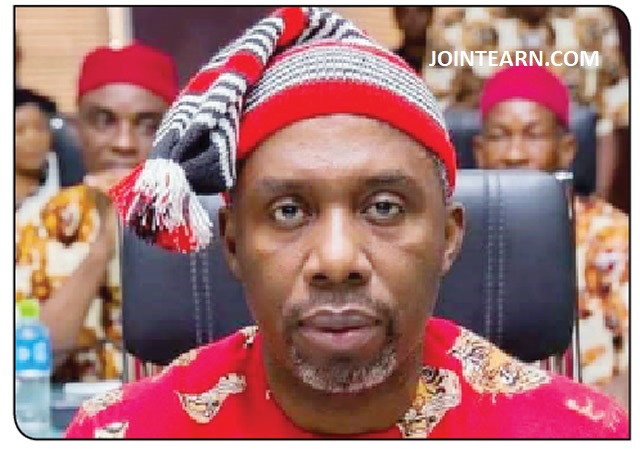In a move that has generated significant political interest, former governors Ifeanyi Ugwuanyi and Okezie Ikpeazu, alongside prominent figures such as Shehu Sani, have been screened for ambassadorial appointments by the Nigerian Senate. The screening, which took place earlier this week, is part of the ongoing process for selecting individuals to represent Nigeria in various diplomatic missions across the world. The development has raised eyebrows within political circles, with the country’s leadership eager to see who will emerge as key players in the nation’s diplomatic front.
The ambassadorial appointments are critical as they serve as a means of strengthening Nigeria’s diplomatic ties globally and enhancing the country’s international reputation. As one of the largest economies in Africa, Nigeria continues to assert itself on the global stage, and the selection of its ambassadors is a process that carries significant weight. The nominees are carefully chosen based on their experience, expertise, and understanding of international relations, as well as their capacity to represent Nigeria effectively.
The Screening Process
The Senate’s screening session saw key figures, including former state governors, political activists, and seasoned diplomats, appear before lawmakers to answer questions related to their qualifications and readiness for the ambassadorial role. Ugwuanyi, the immediate past governor of Enugu State, and Ikpeazu, who served as the governor of Abia State, are two of the most notable names in the mix. Both men bring a wealth of experience from their respective terms in office, having played significant roles in the governance and development of their states.
Ugwuanyi, who governed Enugu State for two terms, is known for his calm demeanor and focus on infrastructural development and social welfare. His leadership has earned him recognition in the South East, where he is considered a political stalwart. Similarly, Ikpeazu, who served as governor of Abia State for eight years, has been instrumental in driving the state’s industrialization agenda, particularly with the promotion of small and medium-scale businesses.
In addition to the former governors, Shehu Sani, a former senator and civil rights activist, was also part of the screening. Sani is known for his outspoken nature and activism, particularly in the area of human rights and anti-corruption. His involvement in the screening process comes as no surprise to many, as he has long been an advocate for Nigeria’s diplomatic interests on the international stage. Sani’s selection for an ambassadorial position could mark a new phase in his political career, shifting from his previous role as a legislator to one that could involve more international engagement.
The screening session also included several other nominees, some of whom are career diplomats, while others are political appointees with varying degrees of experience in international relations. The candidates were questioned on issues ranging from their knowledge of Nigeria’s foreign policy to their preparedness to represent the country’s diverse interests globally.
Political Reactions
The nomination of former governors and high-profile political figures for ambassadorial roles has sparked debates among political analysts and commentators. Some view it as a strategic move by the current administration to reward loyal political allies with prestigious appointments. Others believe it is an opportunity to inject fresh leadership into Nigeria’s diplomatic services, which could lead to more effective representation abroad.
A political analyst, speaking on condition of anonymity, noted that the inclusion of figures like Ugwuanyi, Ikpeazu, and Sani in the ambassadorial selection process was a reflection of the government’s efforts to balance political patronage with diplomatic competence. “These are people who have held significant positions within the country, and they understand the complexities of Nigeria’s domestic and international affairs. They bring a level of gravitas to these roles, which can be beneficial for Nigeria’s foreign policy,” the analyst stated.
However, critics of the nominations argue that the ambassadorial posts should be filled by individuals with more direct experience in foreign affairs, rather than political figures who may lack the necessary expertise. They contend that the appointments should prioritize professionalism over political loyalty.
The Importance of Ambassadorial Appointments
Ambassadors play an essential role in advancing a nation’s interests abroad. They serve as the primary representatives of their countries, engaging with foreign governments, international organizations, and business leaders to foster diplomatic relations, trade agreements, and cultural exchange. In the context of Nigeria, the selection of the right individuals for ambassadorial positions is crucial as the country seeks to strengthen its position as a leading power in Africa and beyond.
The current administration has been focused on boosting Nigeria’s economic diplomacy, especially in areas such as trade, investment, and regional cooperation. The new ambassadors will be expected to drive these initiatives forward while addressing pressing issues such as security, climate change, and humanitarian concerns. With the growing importance of international relations, the success of Nigeria’s foreign policy could hinge significantly on the competency of its ambassadors.
What’s Next for the Nominees?
Following the screening, the next step will be for the Senate to deliberate on the nominees and make recommendations to the President. If confirmed, the individuals will be formally appointed to their respective ambassadorial roles and will begin representing Nigeria in various diplomatic missions around the world.
For now, the nominees, including Ugwuanyi, Ikpeazu, and Shehu Sani, await the Senate’s final decision. Their nominations signal the beginning of what could be a transformative period for Nigeria’s diplomatic service, with new faces potentially bringing fresh perspectives to the country’s foreign policy initiatives.
As the process continues, all eyes remain on the Senate and the final selection of the individuals who will be tasked with representing Nigeria on the global stage.











